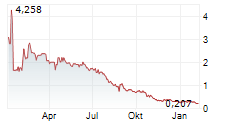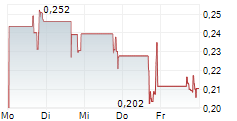- Drug candidate ATR12-351 has been generally safe and well-tolerated with occasional, transient, mild to moderate symptoms at application site
- Trial is 50% enrolled; six patients have received ATR12-351, a live precision dermatology therapeutic candidate
- Azitra presenting at the 2025 BIO International Convention
BRANFORD, Conn., June 17, 2025 /PRNewswire/ -- Azitra, Inc. (NYSE American: AZTR), a clinical stage biopharmaceutical company focused on developing innovative therapies for precision dermatology, today announced encouraging safety data from the initial clinical trial of its live biotherapeutic candidate, ATR12-351, targeting Netherton syndrome.
Netherton syndrome is a rare, autosomal recessive disease that affects the skin, hair, and immune system, often with severe consequences including chronic skin inflammation and dehydration throughout life. The disease affects approximately one in every 200,000 persons, but its prevalence may be underestimated due to misdiagnosis. There is no known cure for Netherton syndrome, and treatment options are limited.
The primary objective of the Phase 1b trial is to assess the safety and tolerability of topically applied ATR12-351, which is designed to deliver an engineered strain of S. epidermidis into the stratum corneum of the skin to replace deficient LEKTI protein. The trial is halfway enrolled, as six patients have been dosed with ATR12-351.
In this clinical trial, patients with genetically confirmed Netherton syndrome are randomly assigned to receive applications of ATR12-351 on preidentified affected areas on one side of the body, and its vehicle (without ATR12-351) on the opposite side of the body. There have been no reports of severe or serious adverse events in the ongoing clinical trial. Application site reactions have been transient and self-resolving and included mild to moderate localized itch, redness, and a burning sensation with application. Such reactions have been observed bilaterally, suggesting this is not a drug effect. The trial remains blinded, and data regarding the effect of ATR12-351 is not available.
"Dosing the sixth patient marks an important milestone for our Phase 1b trial of our ATR-12 program, which is now halfway enrolled, and we are pleased to see an encouraging safety and tolerability profile thus far," said Francisco Salva, CEO of Azitra. "ATR12-351 has the potential to be a life-changing innovation for people with Netherton syndrome, and we look forward to continued progress in this clinical trial as a key step in our mission to bring ATR12-351 to market."
Azitra will discuss the Phase 1b trial for ATR12-351 targeting Netherton syndrome, as well as its Phase 1/2 trial for ATR04-484, designed for the treatment of EGFR inhibitor-associated rash, in its presentation at the BIO International Convention in Boston, Massachusetts. Azitra's presentation is scheduled for 12:00PM ET, on June 17, 2025, in Room 154 of the Boston Convention & Exhibition Center.
About ATR-12
ATR-12 (drug product known as ATR12-351) is an engineered strain of S. epidermidis that expresses a fragment of human lympho-epithelial Kazal-type-related inhibitor (LEKTI) protein, which is missing in patients with Netherton syndrome, a chronic and sometimes fatal disease of the skin estimated to affect approximately 20,000 patients globally. ATR12-351 has been engineered to deliver missing LEKTI protein when applied topically to Netherton syndrome patients. A Phase 1b clinical trial is actively recruiting adult Netherton syndrome patients (NCT06137157).
About Netherton Syndrome
Netherton syndrome is a rare, autosomal recessive disease estimated to affect approximately one in every 200,000 persons, but its prevalence may be underestimated due to misdiagnosis. It is a chronic disease of the skin, characterized by severe inflammation, pruritus, scaling, red, and dehydrated skin. Infants born with Netherton syndrome may suffer from a failure to thrive, and it has been reported that approximately one in ten infants with Netherton syndrome die in their first year of life. Netherton syndrome is caused by mutations in the SPINK5 gene, which codes for the serine protease inhibitor Lympho-epithelial Kazal-type related inhibitor, or LEKTI. The function of LEKTI is to inhibit enzymes in the epidermis, which facilitate the shedding of skin cells in a process known as desquamation. There is no known cure for Netherton syndrome, and treatment options are limited.
About Azitra, Inc.
Azitra, Inc. is a clinical stage biopharmaceutical company focused on developing innovative therapies for precision dermatology. Azitra's lead program, ATR-12, uses an engineered strain of S. epidermidis designed to treat Netherton syndrome, a rare, chronic skin disease with no approved treatment options. Netherton syndrome may be fatal in infancy with those living beyond a year having profound lifelong challenges. The ATR-12 program includes a Phase 1b clinical trial in adults with Netherton syndrome. ATR-04, Azitra's additional clinical program, utilizes another engineered strain of S. epidermidis for the treatment of EGFR inhibitor ("EGFRi") associated skin toxicity; a Phase 1/2 clinical trial has been initiated for this program. Azitra has received Fast Track designation from the FDA for this program to treat EGFRi associated rash, which impacts approximately 150,000 people in the United States. The ATR-12 and ATR-04 programs were developed from Azitra's proprietary platform of engineered proteins and topical live biotherapeutic products that includes a microbial library comprised of approximately 1,500 bacterial strains. The platform is augmented by artificial intelligence and machine learning technology that analyzes, predicts, and helps screen the library of strains for drug like molecules. For more information, please visit https://azitrainc.com.
Forward-Looking Statements
This press release contains forward-looking statements within the meaning of the Private Securities Litigation Reform Act of 1995, as amended. These statements may be identified by words such as "aims," "anticipates," "believes," "could," "estimates," "expects," "forecasts," "goal," "intends," "may," "plans," "possible," "potential," "seeks," "will," and variations of these words or similar expressions that are intended to identify forward-looking statements. Any such statements in this press release that are not statements of historical fact may be deemed to be forward-looking statements. These forward-looking statements include, without limitation, statements regarding the expected timing of our provision of safety data and topline results for the Phase 1b trial for our ATR-12 program, the expected timing of the initiation of dosing in the Phase 1/2 clinical trial for our ATR-04 program, the expected timing of any other release of data, our clinical and preclinical programs, and corporate and clinical/preclinical strategies.
Any forward-looking statements in this press release are based on current expectations, estimates and projections only as of the date of this release and are subject to a number of risks and uncertainties that could cause actual results to differ materially and adversely from those set forth in or implied by such forward-looking statements. These risks and uncertainties include, but are not limited to that we may experience delays in the provision of topline results for studies of ATR-12 or ATR-04 programs, or that such data may not be favorably received; we may experience delays in dosing patients in our clinical trials; our product candidates may not be effective; there may be delays in regulatory approval or changes in regulatory framework that are out of our control; our estimation of addressable markets of our product candidates may be inaccurate; we may fail to timely raise additional required funding; more efficient competitors or more effective competing treatment may emerge; we may be involved in disputes surrounding the use of our intellectual property crucial to our success; we may not be able to attract and retain key employees and qualified personnel; earlier study results may not be predictive of later stage study outcomes; and we are dependent on third-parties for some or all aspects of our product manufacturing, research and preclinical and clinical testing. Additional risks concerning Azitra's programs and operations are described or incorporated by reference in our annual report on Form 10-K filed with the SEC on February 24, 2025, and our quarterly report on Form 10-Q filed on May 13, 2025. Azitra explicitly disclaims any obligation to update any forward-looking statements except to the extent required by law.
Contact
Norman Staskey
Chief Financial Officer
[email protected]
Investor Relations
Tiberend Strategic Advisors, Inc.
Jon Nugent
205-566-3026
[email protected]
Media Relations
Tiberend Strategic Advisors, Inc.
Casey McDonald
646-577-8520
[email protected]
SOURCE Azitra, Inc.



